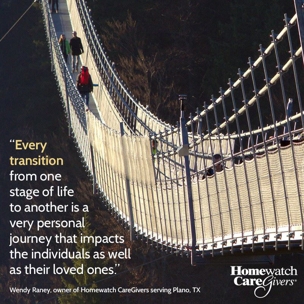 It is a problem drawn into sharp focus by the recent health care reform law. Each day, hospitals face the aftermath of a chronic condition, treating acute health crises that stem from poorly-managed long-term problems. Hospitals provide acute care for incidents like a heart attack instead of chronic care for a condition like heart disease. But patients often need care that lasts much longer than a hospital stay since it is likely the issues related to the hospital stay will continue for years.
It is a problem drawn into sharp focus by the recent health care reform law. Each day, hospitals face the aftermath of a chronic condition, treating acute health crises that stem from poorly-managed long-term problems. Hospitals provide acute care for incidents like a heart attack instead of chronic care for a condition like heart disease. But patients often need care that lasts much longer than a hospital stay since it is likely the issues related to the hospital stay will continue for years.
Care Transitions Map
Up until now, payments for hospital stays were not tied to outcomes and avoidance of emergency visits and readmissions. A new payment paradigm rewards successful care transitions from the acute care setting to the long-term permanent residence, helping to break the cycle of discharges and readmissions. The ultimate goal is not to just keep people from return trips to the hospital, but to keep them out of the hospital in the first place.
“This is the only way to break the cycle,” said Jette R. Hogenmiller, PhD, MN, APRN. “We have to start implementing solutions early before we get stuck always responding to a problem. If we are proactive, we can help people avoid pitfalls which may prevent the need for hospitalizations.”
To make this happen, care coordination between acute care and post-acute care providers is the key. When a person leaves the hospital following a heart attack, a home care agency’s guidance can limit factors that could contribute to another episode. In this way – targeting typical problems with practical solutions, it maximizes each person’s health and enjoyment of their life as they learn to manage a chronic condition. By empowering and supporting clients and their families, we can teach them how to navigate their own care.
“It’s that old adage: Give a man a fish, he eats for a day. Teach a man to fish and he eats for a lifetime. Navigating Care can be our way of teaching clients and their families to fish, but we will always be there to help them adjust when the fish moves to different parts of the stream,” said Jennifer Tucker, COO of the company.
“Each problem has a solution. If a person is at-risk because they are overweight, senior home care services can help them eat healthier; if a person or their family struggles with health care terminology, home care service providers can help them understand confusing terms; if a person needs longer-term care than a hospital can provide, home care can assist them at home. In this way, astute elderly home care providers actually help navigate individuals away from hospitalizations,” Hogenmiller said.
Solving problems in a cost-effective manner through five distinct steps:
1.Client Care Coordination: Using a long-term and team-based approach to an individual’s care makes sure that individual’s needs and preferences are the priority. By working together with medical professionals, home care agencies can make sure their caregivers provide the proper resources and close the gaps in communication.
“Specifically, care plans for home care clients are client centered. They are developed jointly with the client and family based on their needs and preferences. Our goal is to collaborate and obtain input from the client’s health care providers, such as doctors, nurse practitioners, physician assistants, and nurses. This way, medical professionals can examine what is and is not working and tailor the care to the individual. With this sort of interaction, it’s easier to spot any problems before they develop and drive toward better outcomes,” Hogenmiller said.
2. Dynamic Person-Centered Care Plans: When a person is helped through a care plan customized to them, it addresses their specific needs. Too often, people are treated based on what their chronic condition requires, not on what can help them the most, or what is most practical and possible when considering a person’s entire situation. Person-centered care also empowers and encourages both the client and their families to participate in their own care.
“This is really crucial. When all key stakeholders work together as a team, then everyone has a stake in the game. Care is not about following instructions – it’s about working together for the best possible solution. We need to ask a person what they want as part of our holistic approach. The care plan is not just about what the client needs, it’s about what they want and what makes them happy. By keeping people involved in their care, they don’t feel helpless or a sense of forced dependency,” Tucker said.
3. Recognizing Red Flags: Medical and skilled care, by its nature, is intermittent. Doctors, nurses and therapists aren’t always around to see developments with their patients – but family and highly-trained in-home caregivers can be. They are the extra eyes and ears medical professionals need. By equipping not just professional caregivers, but family members, with the skills needed to notice warning signs, they can bring up any issues to medical professionals who can make necessary changes if they are warranted.
“A proactive stance in this area goes a very long way in avoiding hospitalizations. Imagine if, weeks before a person has an acute health need, their health care provider knew that they were starting to show danger signs because a caregiver spoke up. This opens a whole new world in keeping people safe in their homes,” Hogenmiller said.
4. Medication Management: Problems with medication are a major reason people end up back in the hospital after a discharge – problems with medication cost $290 billion a year, according to the Centers for Disease Control and Prevention. Patients can miss dosages or accidentally overdose because they don’t have another person around to remind and guide them in their care. Caregivers can identify a tailored system of reminders based on each client’s needs. However, medication management goes beyond just making sure someone takes their pills at the right time; it involves a deeper understanding of side effects, how medications interact with each other, and the reasons why prescriptions must be taken on a schedule. This is why our communication with health care providers about client medication issues is so important.
“The simple fact is that families and their loved ones need to be comfortable with keeping track of medications in a day-to-day environment. If we teach them ways to become at ease with this responsibility we relax fears and promote safety. This provides peace of mind and more positives outcomes in this vital area,” Hogenmiller said.
5. Lifestyle Management: Making sure people lead healthy lives helps keep people from needing a hospital stay in the first place. This includes taking responsibility for eating right and getting proper exercise, but also goes beyond that. Managing a lifestyle helps people understand why they need to go to follow-up appointments with health care providers (e.g. doctors, nurse practitioners, physician assistants) and get the proper tests when needed. One in 3 adult patients does not visit a health care provider’s office within 30 days of a hospital discharge, often because they do not want to reveal their poor hygiene since they cannot safely bathe on their own. When a family member or caregiver knows about this issue, they can provide the necessary assistance. It is equally important for caregivers to help people understand the importance of keeping the home a safe environment by working to clear cluttered walkways and other dangers that could cause a fall resulting in a serious injury and subsequent hospital stay.
“Each day represents another opportunity to keep a person from having to go to the hospital. Each day they can do something that will make themselves healthier. We know this is not always easy to do and that is why in-home caregivers can make a difference. Through supporting positive behavior, encouragement and accountability, we can help people live healthier lives,” Tucker said.
It’s important to understand that these five steps have the potential to do more than just make a difference when a person gets out of the hospital – a person can take them now with help from a progressive, long-term care organization. There is no point in waiting for something to go wrong when it can be prevented from happening in the first place.



.1803151925550.jpg)

